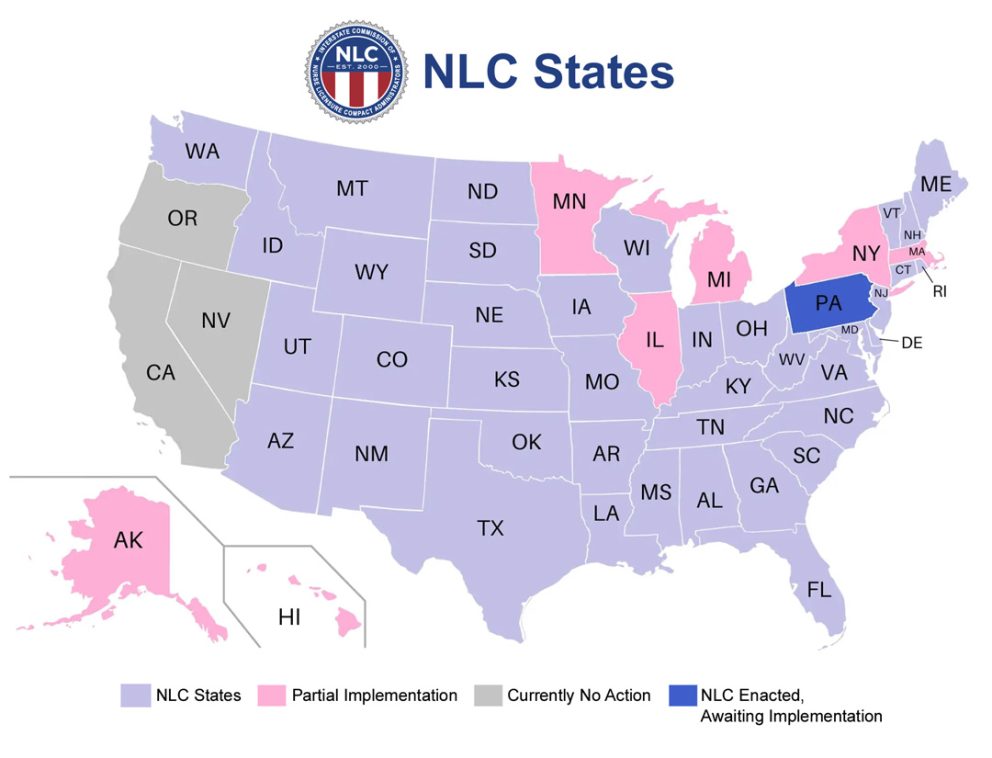Understanding Nurse Compact States
In the ever-evolving healthcare landscape, nurses play a pivotal role in providing quality care to patients. The Nurse Licensure Compact (NLC) was established to streamline the licensure process and facilitate mobility across different states. This compact allows nurses to practice in multiple states without the need for additional licenses. In this blog, we'll delve into nurse compact states, exploring what they are and how they operate.

What are the Nurse Compact States?
Nurse compact states, also known as compact states, are those that have enacted legislation to participate in the Nurse Licensure Compact (NLC). The NLC allows nurses to hold one multistate license, which grants them the privilege to practice in their home state as well as other compact states without obtaining additional licenses.
How Does the Nurse Licensure Compact Work?
The Nurse Licensure Compact operates under the following principles:
- Mutual Recognition: Nurses who hold a multistate license issued by their home state can practice in other compact states without having to obtain additional licenses. This mutual recognition promotes mobility and facilitates the delivery of healthcare services across state lines.
- Uniform Standards: Participating states adhere to uniform licensing requirements and standards established by the Nurse Licensure Compact Administrators. These standards ensure consistency in nursing practice and uphold patient safety.
- License Verification: Employers and regulatory bodies can verify the licensure status of nurses through a centralized database known as the Nurse Licensure Compact (NLC) database. This database contains information on nurses holding multistate licenses and their licensure status.
Benefits of Nurse Compact States
The Nurse Licensure Compact offers several benefits for both nurses and healthcare organizations, including:
- Enhanced Mobility: Nurses with a multistate license can easily travel and practice in multiple states, thereby expanding their career opportunities and experiences.
- Increased Access to Care: By allowing nurses to practice across state lines, the NLC helps alleviate healthcare workforce shortages in underserved areas and improves access to care for patients.
- Administrative Efficiency: Streamlining the licensure process reduces administrative burdens for nurses and healthcare facilities, saving time and resources.
Nurse compact states play a crucial role in promoting nursing mobility and ensuring quality patient care across state lines. By participating in the Nurse Licensure Compact, states contribute to a more efficient and effective healthcare system. As the healthcare landscape continues to evolve, the NLC remains an essential framework for supporting nursing practice and addressing the dynamic needs of patients and healthcare providers alike.